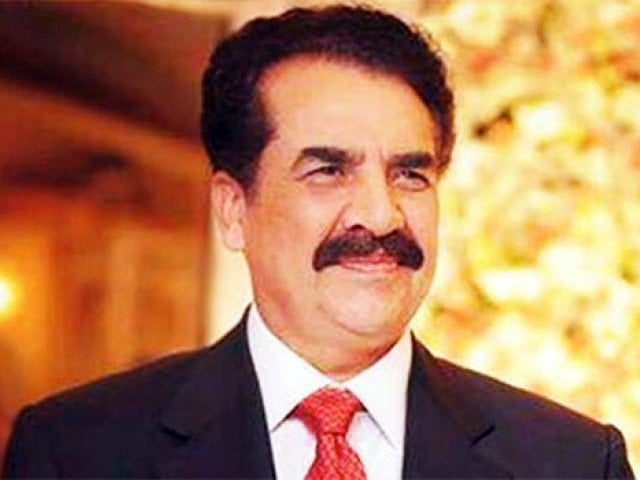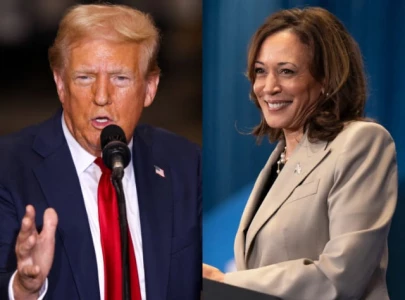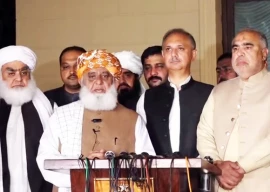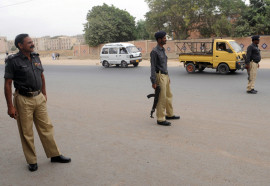
Iran is known to have opposed the Saudi initiative because of its serious differences with the oil-rich kingdom over the current unrest in the Middle East, particularly in Syria and Yemen.
But this is the first time that Iran has publicly expressed its displeasure over Pakistan’s move to allow Raheel to lead the 39-nation alliance Saudi Arabia had cobbled together in December 2015.
Iran’s state IRNA news agency on Monday quoted the country’s Ambassador in Islamabad Mehdi Honardoost as saying that Tehran had reservations over the issuance of a no-objection certificate (NoC) by the Pakistan government to the former army chief.
Raheel Sharif named chief of Islamic military coalition, says Khawaja Asif
Honardoost’s formal reaction came despite an assurance given to Iran at the highest level that Pakistan’s decision to join the alliance would not affect its bilateral cooperation with the Islamic Republic.
Just days before the government issued the NOC to Gen Raheel, the Iranian envoy had visited the General Headquarters (GHQ) where army chief General Qamar Javed Bajwa gave him a categorical assurance that Islamabad’s decision would not hurt Tehran’s interests.
Sources with the knowledge of the meeting told The Express Tribune that Gen Qamar told the Iranian envoy that his country should not be concerned over Pakistan’s decision to join the Saudi alliance.
Govt to allow Raheel Sharif to lead Saudi-led alliance
The army chief also informed Honardoost that Pakistan ‘values its bilateral ties with Iran’ and joining the alliance would not damage the relationship.
Responding to Iran’s concerns, Gen Qamar said Pakistan had never objected to Tehran’s close ties with New Delhi and, therefore, Pakistan expected Iran to respect the decision over the Saudi alliance.
Not only the army chief took the Iranian leadership into confidence but Adviser to PM on Foreign Affairs Sartaj Aziz had also travelled to Tehran in late February to address the neighbouring country’s concerns.
Sources said General Qamar might visit Iran in the coming days to assuage fears of the Iranian leadership over the controversial alliance.
Pakistan has traditionally maintained a delicate balance in its relationship with Iran and Saudi Arabia, which have serious differences due to the unrest in Syria and Yemen. Iran suspects that the Saudi initiative is not meant for fighting terrorism but to further a ‘sectarian’ agenda.
Raheel Sharif named chief of Islamic military coalition, says Khawaja Asif
Riyadh says the alliance has been formed to counter terrorism; however, it has not spelt out a clear roadmap for it. Pakistan has agreed in principle to join the alliance but the extent of its cooperation is also not known.
Officials said Pakistan has clearly told Saudi Arabia that its participation would be strictly for the purpose of fighting terrorism and that it would not become part of any campaign against any other country, including Iran.
Gen Raheel reportedly accepted the offer on the condition that countries such as Iran would also be invited to join the group in order to make it a broad-based initiative and dispel the impression about its sectarian outlook.
However, given its serious differences with Saudi Arabia, Iran is highly unlikely to accept such an offer leaving a daunting challenge for Pakistan to avoid being dragged into the Iran-Arab rivalry.
Opposition parties including the Pakistan Peoples Party and Pakistan Tehreek-e-Insaf are also skeptical of Gen Raheel’s role in the Saudi alliance.
Both the parties consider the decision as violation of parliament’s resolution passed in April 2015 that called for maintaining the policy of ‘neutrality’, particularly in the ongoing conflict of Yemen.
Meanwhile, Defence Minister Khawaja Asif said Saudi Arabia had requested for the services of Gen Raheel Sharif and the government has decided in principle to approve this request.
“However, Gen Raheel will have to apply for that or Saudi Arabia will have to write. A [formal] permission will be granted in the light of the rules of the Ministry of Defence,” Asif said while talking to Javed Chaudhry – the host of Express News’s talk show Kal Tak.
The defence minister said there should be no problem granting this permission ‘if there is no violation of the rules’. “The terms of reference including duration of the job will become clear after the meeting of the alliance which is due in May,” he said.
Asif said this was an alliance against terrorism and Gen Raheel’s appointment was not in violation of the 2015 resolution of the parliament, which said that Pakistan should not embroil itself in the ongoing conflict in Yemen.
“Prime Minister Nawaz Sharif will mediate in case of any conflict. If any brother country asks for help in case of any aggression, Pakistan will help. Our forces have been in Jordan and Syria in the past,” he said.



1730788481-0/BeFunky-collage-(19)1730788481-0-165x106.webp)


1730786905-0/£300,000-(1)1730786905-0.png)








1730706072-0/Copy-of-Untitled-(2)1730706072-0-270x192.webp)
COMMENTS (36)
Comments are moderated and generally will be posted if they are on-topic and not abusive.
For more information, please see our Comments FAQ